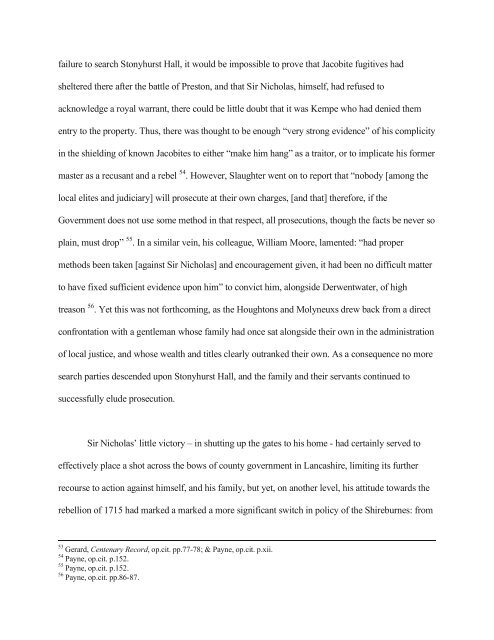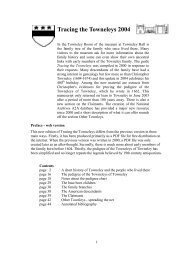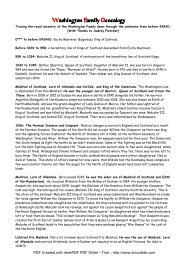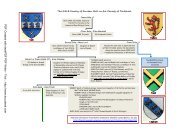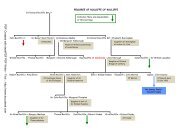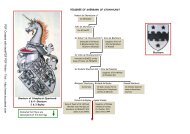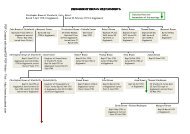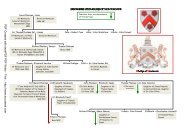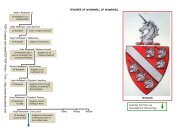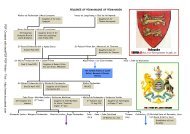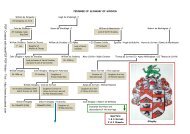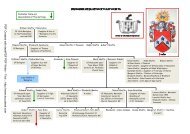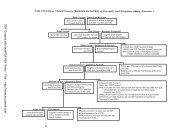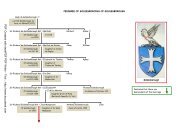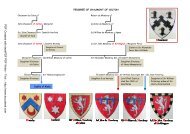SHIRBURNS of Stoneyhurst.pdf - Ingilby History
SHIRBURNS of Stoneyhurst.pdf - Ingilby History
SHIRBURNS of Stoneyhurst.pdf - Ingilby History
You also want an ePaper? Increase the reach of your titles
YUMPU automatically turns print PDFs into web optimized ePapers that Google loves.
failure to search Stonyhurst Hall, it would be impossible to prove that Jacobite fugitives had<br />
sheltered there after the battle <strong>of</strong> Preston, and that Sir Nicholas, himself, had refused to<br />
acknowledge a royal warrant, there could be little doubt that it was Kempe who had denied them<br />
entry to the property. Thus, there was thought to be enough “very strong evidence” <strong>of</strong> his complicity<br />
in the shielding <strong>of</strong> known Jacobites to either “make him hang” as a traitor, or to implicate his former<br />
master as a recusant and a rebel 54 . However, Slaughter went on to report that “nobody [among the<br />
local elites and judiciary] will prosecute at their own charges, [and that] therefore, if the<br />
Government does not use some method in that respect, all prosecutions, though the facts be never so<br />
plain, must drop” 55 . In a similar vein, his colleague, William Moore, lamented: “had proper<br />
methods been taken [against Sir Nicholas] and encouragement given, it had been no difficult matter<br />
to have fixed sufficient evidence upon him” to convict him, alongside Derwentwater, <strong>of</strong> high<br />
treason 56 . Yet this was not forthcoming, as the Houghtons and Molyneuxs drew back from a direct<br />
confrontation with a gentleman whose family had once sat alongside their own in the administration<br />
<strong>of</strong> local justice, and whose wealth and titles clearly outranked their own. As a consequence no more<br />
search parties descended upon Stonyhurst Hall, and the family and their servants continued to<br />
successfully elude prosecution.<br />
Sir Nicholas’ little victory – in shutting up the gates to his home - had certainly served to<br />
effectively place a shot across the bows <strong>of</strong> county government in Lancashire, limiting its further<br />
recourse to action against himself, and his family, but yet, on another level, his attitude towards the<br />
rebellion <strong>of</strong> 1715 had marked a marked a more significant switch in policy <strong>of</strong> the Shireburnes: from<br />
53 Gerard, Centenary Record, op.cit. pp.77-78; & Payne, op.cit. p.xii.<br />
54 Payne, op.cit. p.152.<br />
55 Payne, op.cit. p.152.<br />
56 Payne, op.cit. pp.86-87.


